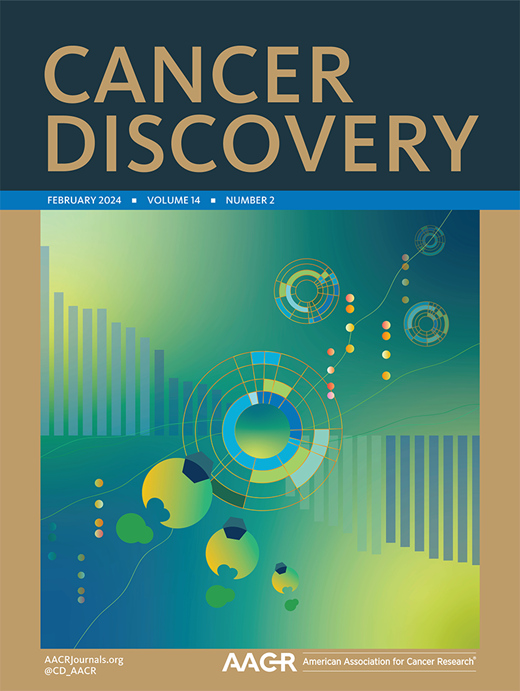Human papillomavirus integration induces oncogenic host gene fusions in oropharyngeal cancers.
IF 29.7
1区 医学
Q1 ONCOLOGY
引用次数: 0
Abstract
HPV integration disrupts host genomic structure and expression, but whether these alterations promote cancer development remains unclear. Multiple genomic analyses of oropharyngeal cancers identified several host fusion genes, including recurrent FGFR3-TACC3 fusions, expressed from rearranged genomic loci adjacent to HPV integration sites. Evolutionary modeling implicated integration of virus concatemers into the host genome as a common initiating event in fusion formation. Co-expression of HPV16 E6/E7 and FGFR3-TACC3, but neither alone, was sufficient for tumor development in both xenograft and syngeneic mouse models and led to unique transcriptional programs implicated in carcinogenesis. FGFR3-TACC3 expression decreased the ubiquitination and degradation of E6 and E7, thereby increasing oncoprotein abundance. We conclude that expression of HPV16 oncoproteins and host gene fusions generated from HPV integration sites can be sufficient for cancer development.人乳头瘤病毒整合诱导口咽癌中致癌宿主基因融合。
HPV整合破坏宿主基因组结构和表达,但这些改变是否促进癌症发展尚不清楚。口咽癌的多项基因组分析发现了几种宿主融合基因,包括复发的FGFR3-TACC3融合基因,这些基因从HPV整合位点附近的重排基因组位点表达。进化模型暗示病毒拼接体整合到宿主基因组中是融合形成的共同起始事件。HPV16 E6/E7和FGFR3-TACC3的共同表达,但两者都不能单独表达,足以在异种移植和同基因小鼠模型中促进肿瘤的发展,并导致与癌变有关的独特转录程序。FGFR3-TACC3的表达降低了E6和E7的泛素化和降解,从而增加了癌蛋白的丰度。我们得出结论,HPV整合位点产生的HPV16癌蛋白和宿主基因融合的表达足以导致癌症的发展。
本文章由计算机程序翻译,如有差异,请以英文原文为准。
求助全文
约1分钟内获得全文
求助全文
来源期刊

Cancer discovery
ONCOLOGY-
CiteScore
22.90
自引率
1.40%
发文量
838
审稿时长
6-12 weeks
期刊介绍:
Cancer Discovery publishes high-impact, peer-reviewed articles detailing significant advances in both research and clinical trials. Serving as a premier cancer information resource, the journal also features Review Articles, Perspectives, Commentaries, News stories, and Research Watch summaries to keep readers abreast of the latest findings in the field. Covering a wide range of topics, from laboratory research to clinical trials and epidemiologic studies, Cancer Discovery spans the entire spectrum of cancer research and medicine.
 求助内容:
求助内容: 应助结果提醒方式:
应助结果提醒方式:


